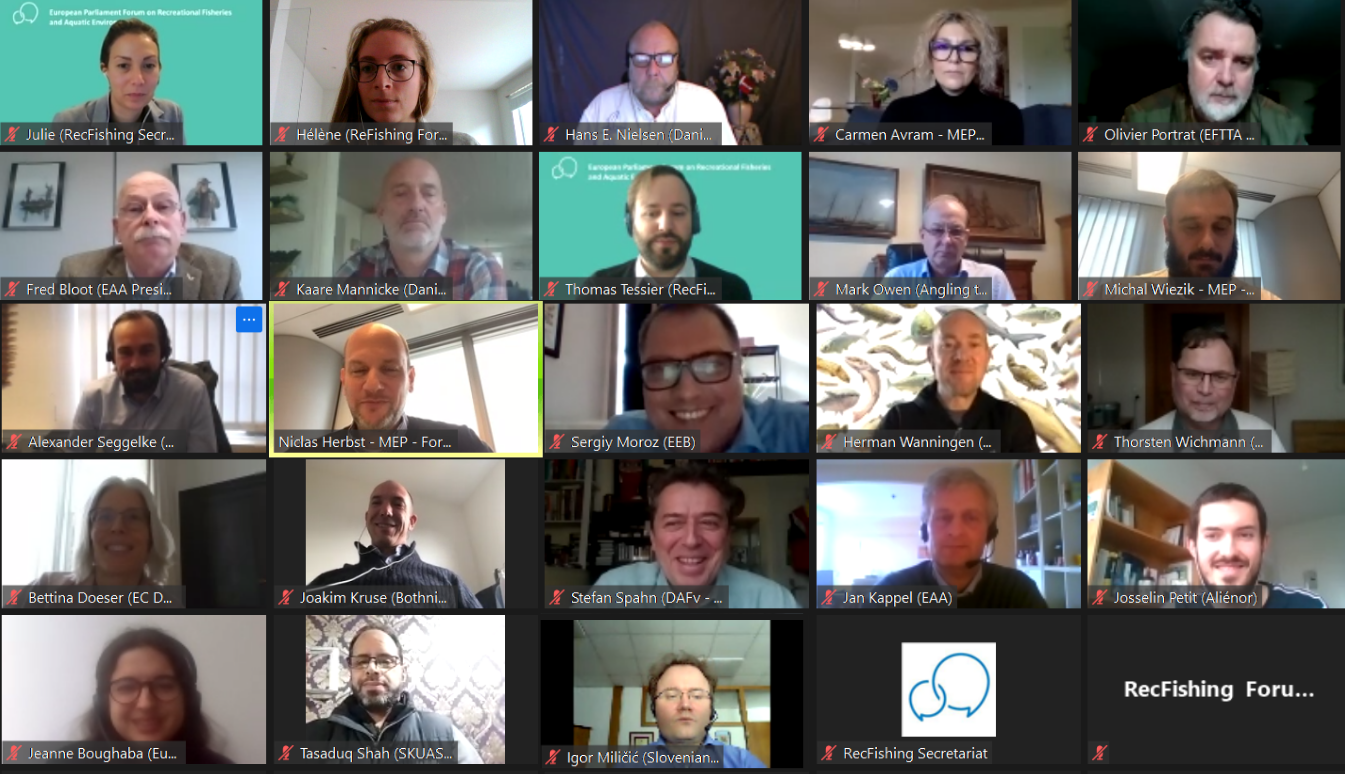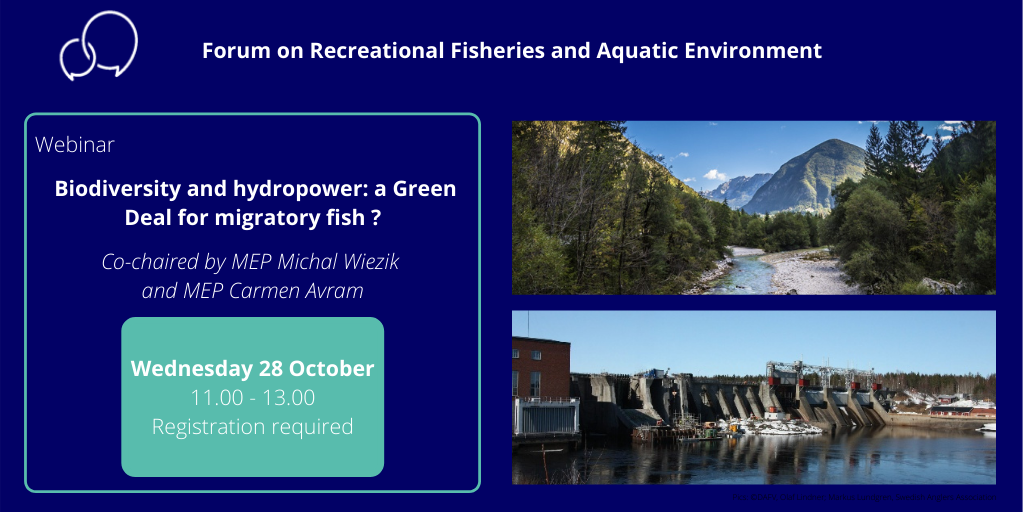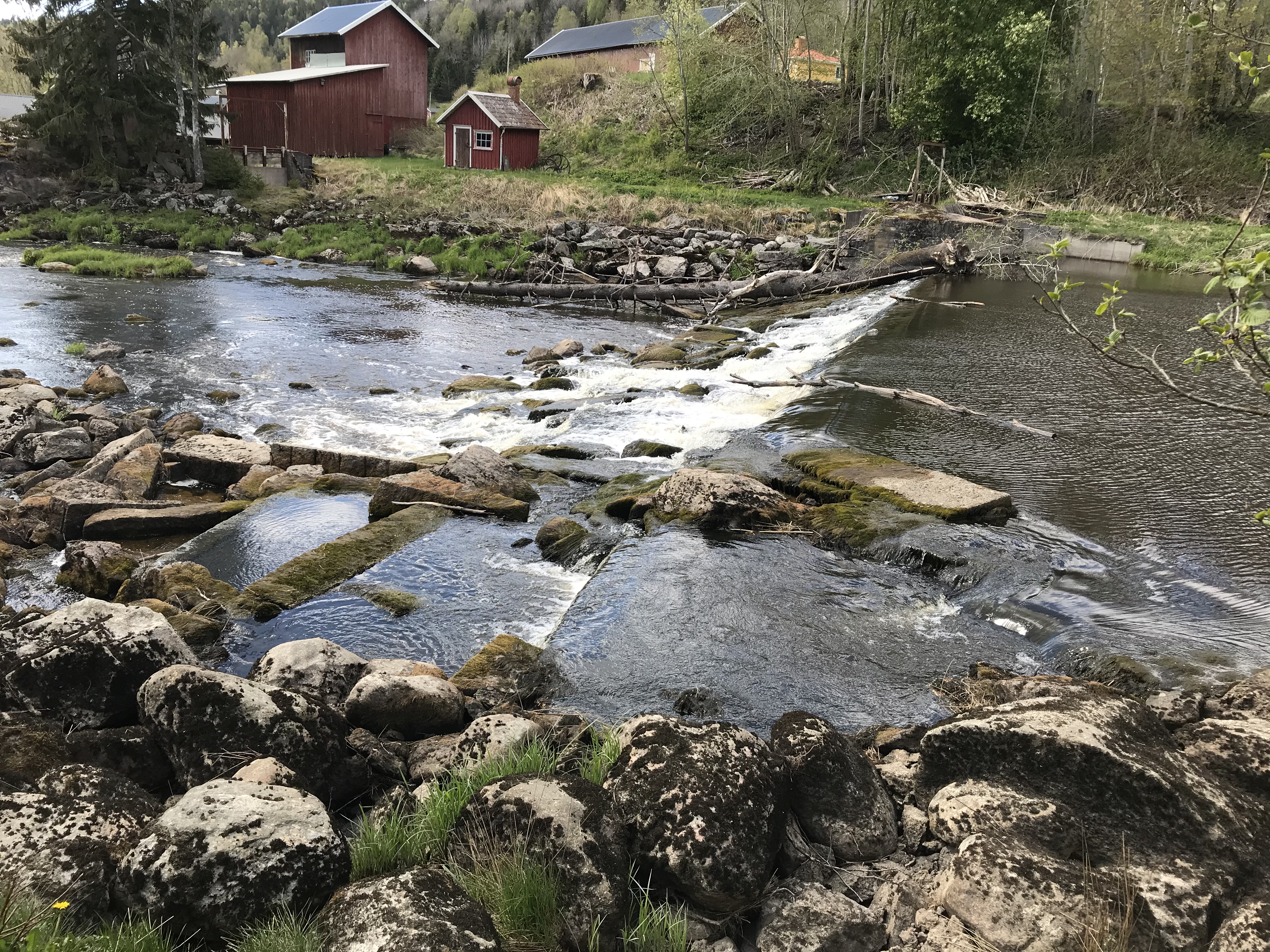Urgent need for a Green Deal for migratory fish
The EU must achieve consistency between biodiversity protection and decarbonisation of the energy production
With the new Biodiversity Strategy, the EU has set itself a target of restoring 25,000 kilometres of free-flowing rivers by 2030, in addition to the requirements for Member States to reach ‘Good Status’ in all water bodies in Europe by 2027. This is essential to tackle the dramatic decline in freshwater migratory fish population in the last 50 years: a 93% drop according to the Living Planet Index Report. Hydropower and dams are identified amongst the key drivers of this decrease. There is an urgent need for further awareness raising on the impact of hydropower on the aquatic environment and to strike consistency between the biodiversity and decarbonisation objectives of the EU, in terms of policies, implementation and funding. The European Parliament is working intensely on the roll-out of the Green Deal for Europe. The webinar of the Forum on Recreational Fisheries and the Aquatic Environment took place in this context and following the World Fish Migration Day which took place on 24 October.
The report of the event is now available here.

On 28 October, MEP Carmen Avram (Romania, S&D Group) and Michal Wiezik (Slovakia, EPP Group) co-chaired a webinar of the European Parliament Forum on Recreational Fisheries and Aquatic Environment dedicated to a discussion on the impact of hydropower on fish migration and the EU’s new commitments under the Biodiversity Strategy for 2030.
Both Members of the European Parliament pointed out to the dramatic decrease in freshwater biodiversity over the last decade and the urgent need to take action to restore and protect migratory fish species. MEP Michal Wiezik recalled how fragmented European rivers are, with more than 1 million barriers while “migration is crucial for the life cycle of fish species”. “A single action will not get us to the shore” argued MEP Carmen Avram, calling for a comprehensive approach to the issue of balancing biodiversity and decarbonisation objectives. She also pointed out to the importance of national plans and a thorough examination, at local level, with a case by case assessment of the costs and benefits of each hydropower plant.
MEPs also called for greater awareness about this dramatic situation to be raised amongst European decision makers and citizens. Mark Owen, Head of Freshwater at Angling Trust, representative of the European Anglers Alliance in the Living Rivers Europe NGO coalition, highlighted that “anglers have been very concerned by the impact of hydropower on fish species and migration for a long time. The COVID-19 pandemic has resulted in even more people going fishing and becoming more aware of issues regarding the freshwater environment. It means that, in the future, citizens will demand even more actions from Governments and the EU to improve the quality of the aquatic environment.”
Sergiy Moroz, Policy Manager for Water & Biodiversity at the European Environmental Bureau, also part of the Living Rivers Europe coalition, made a strong call on behalf of 150 NGOs for the EU to end subsidies to the construction of new hydropower plants and to reallocate the funds to the removal of old and obsolete dams and to the ecological refurbishment of existing hydropower plants. “It is possible to achieve ambitious climate goals, even earlier than 2050, without relying on hydropower” he concluded.
Restoring free-flowing rivers and preventing new barriers on European rivers is not only important to achieve the EU biodiversity objectives. It will also bring many economic, social and health benefits, some of them linked to angling activities and the recreational fisheries sector.
Press release, 29.10.2020
Documents of the meeting:
Presentations:
Webinar
Biodiversity and hydropower: a Green Deal for migratory fish?
28 October 2020
MEP Michal Wiezik and MEP Carmen Avram will chair the webinar “Biodiversity and hydropower: a Green Deal for migratory fish?” organised by the European Parliament Forum on Recreational Fisheries and Aquatic Environment, with the support of the European Anglers Alliance (EAA) and the European Fishing Tackle Trade Association (EFTTA).
The webinar will take place on 28 October 2020, from 11:00 to 13:00.

Agenda
Please register here.
The European Commission aims, through its European Green Deal, to make Europe the first climate-neutral continent by 2050, notably by significantly increasing the share of renewables in the energy production. With the Green Deal, the EU has set the course for the decarbonisation of the continent, but it has also announced a wider environmental ambition, including concerning biodiversity.
A recent report by the World Fish Migration Foundation highlighted the dramatic decline in migratory freshwater fish species. On average, migratory fish species have declined by 93% since 1970 in Europe. There is an urgent need for action, in order for Europe to deliver on biodiversity protection and restoration. The Biodiversity Strategy adopted in May 2020 and its implementation will be crucial to reverse negative trends. The objective to restore 25,000 km of rivers as free flowing by 2030 points to the right direction.
At the same time, the pressure of hydropower dams on Europe’s rivers is immense and keeps growing every year, with more than 20,000 existing plants and more than 8,000 additional ones being planned. The WFMF report identifies dams and hydropower plants as one of the major threats to aquatic biodiversity, because of their well-documented impact on water ecosystems.
The challenge is thus for the European Union to deliver on its decarbonisation objective, to produce energy from renewable sources, without putting further pressure on the aquatic environment and ecosystems. The event will discuss the Biodiversity Strategy roll-out and action plan in relation to European rivers, the implementation and enforcement of the Water Framework Directive, the impact of hydropower on European rivers, and the removal of dams.
